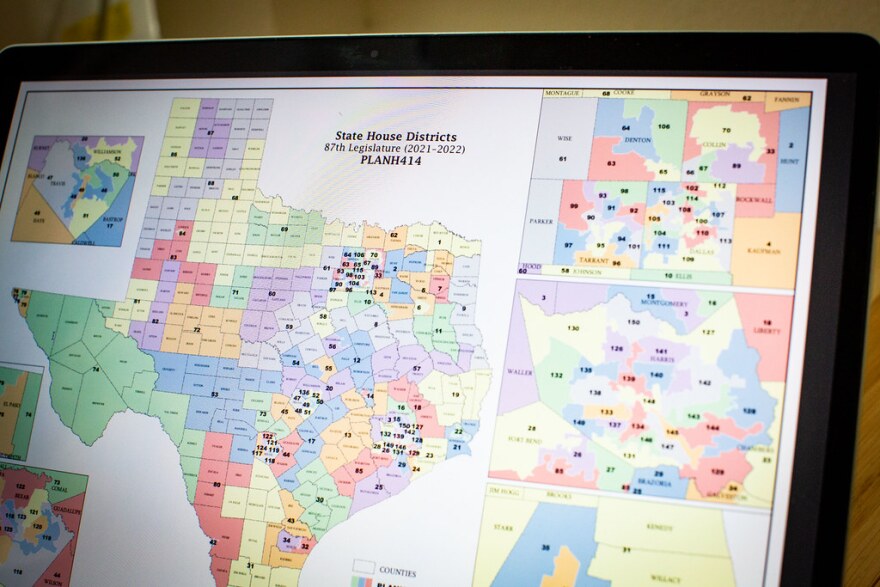Texas Democrats say the state’s legislative districts can’t be redrawn in 2021 and they’re asking a federal court to redraw them before the 2022 election.
The state has already begun work on redrawing its maps, but a federal lawsuit filed Wednesday argues the state can't legally do so until after the 2022 election. The suit also argues the state's maps violate federal election protections.
In light of that, state Sen. Sarah Eckhardt of Austin and state Sen. Roland Gutierrez of San Antonio asked a federal court Wednesday to redraw Texas' House and Senate districts.
After 2020 Census results were delayed, state lawmakers held off on redrawing maps. Gov. Greg Abbott signaled he will call a special legislative session to redraw the state's legislative boundaries, a process known as redistricting. The lawsuit argues Texas' constitution requires lawmakers meet in a regular session to redraw boundaries, not a special session. The next regular session isn't until 2023.
The governor is expected to call a special session in the next two weeks. The lawsuit wants a federal court to intervene before then and draw temporary maps for the state's 2022 elections. The suit would not affect the state's congressional redistricting process.
On top of that, now that Census numbers are out, Eckhardt and Gutierrez argue their now-overpopulated districts need to be redrawn to ensure their constituents have equal representation in the state's legislature ahead of the 2022 elections. The Tejano Democrats, a group representing Mexican-American voters and candidates, also joined the federal lawsuit in the hopes of ensuring minority voters statewide have equal representation as well.
Eckhardt says Article III of Texas' constitution and the state law that created Texas' redistricting board, which draws the new legislative maps, is "very specific" about the regular session requirement.
Because the next regular session of the Texas Legislature isn't until after the 2022 elections, Eckhardt told KUT that, in light of the state's growth, Texas' boundaries would violate the one-person-one-vote principle, which guarantees equal representation.
"That's a very basic tenet of the U.S. Constitution, that we have representative democracy," she said. "So, this is a basic issue that we must correct."
Texas' efforts to redraw its legislative boundaries have been tied up in courts every decade since the passage of the Voting Rights Act of 1965. The state's last fight over redistricting maps ended at the U.S. Supreme Court. The high court ruled that state lawmakers did not intentionally discriminate against minority voters when redrawing its legislative boundaries.
This round of redistricting is going to be a fight as well. Texas' population boomed over the last 10 years, a boom that was driven by Texas' Latino population and urban expansion in left-leaning cities. Democratic groups say the state's GOP-led redistricting process will likely seek to break up some districts to maintain Texas Republicans' decades-long control of state government.
Hearings on Texas' redistricting process began earlier this year, but the process will begin in earnest over the next two weeks. As of today, lawmakers have access to 2020 Census data and both the House and Senate committees on redistricting have hearings scheduled over the next two weeks.
The Texas Legislature's second special session this summer ends on Labor Day. It's expected Abbott will call lawmakers back to tackle redistricting soon after that.








